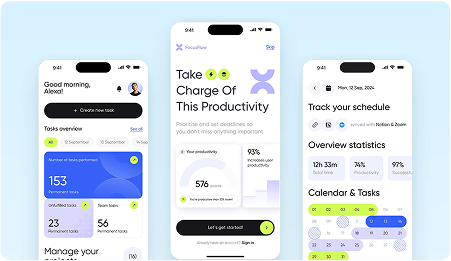
Video Game Development Stages and Production | The Best Guide in Town
Welcome to the world of video game development! So, have you ever found yourself lost in a video game? Then, you might be surprised to learn just how much effort goes into creating these wonders. Basically, the video game industry is worth over $200 billion. And it’s constantly evolving. Moreover, with new tech, platforms, and gaming trends popping up yearly, it’s best for creative minds and tech enthusiasts alike.
Thank you for reading this post, don't forget to subscribe!
So, let’s walk through the stages of game development. Are you ready to level up your understanding of video game production? Let’s jump right in!
Understanding Video Game Development
Table Of Content
What is Video Game Development?
Firstly, you need to know about the basics. So, what exactly is video game development? Basically, in simple words, it’s just the process of
- Designing
- Creating
- Delivering a video game to players
Now, this involves a combination of
- Art
- Tech
- Good old-fashioned creativity
So, it’s not just about writing code. In fact, it’s about building immersive experiences that keep players coming back for more.

Now, in the world of video game development, you’ll find various fields at play. You’ve got
- Designers crafting captivating game worlds
- Programmers who breathe life into those worlds through code
- Artists creating stunning visuals
- Audio engineers ensure everything sounds pretty
So, from collecting coins to the growl of a lurking monster, everything enhances the gameplay. Each element plays a vital role, working together to create an immersive experience.
Why Video Game Development is Unique
Okay, so how is video game production different from regular computer programs? Well, games aren’t just about making things work. Basically, they are about crafting experiences that are fun and exciting. Regular software, like
- Word processors
- Spreadsheets
They are focused on being useful and easy to use. However, games are a mix of storytelling and interactive play. This makes them a whole different ball game.
Game development is full of challenges! Developers often struggle to balance creativity with tech limitations. Imagine having a brilliant idea for a game. However, your game engine can’t handle the graphics you envision. So, it’s a constant balancing act between innovation and reality. But for developers, it isn’t just solving problems. But it’s also about seeing the joy players find in the final product.
Key Stages of Game Development
Now, the journey of video game production is an adventure in itself. Basically, it’s filled with twists, turns, and a few unexpected surprises. So, let’s dig into that and break it down into key stages. That way, you’ll get a clearer picture of how ideas transform.
1. Concept and Ideation
Firstly, every game begins with a single thought. However, where do these thoughts come from? They can spring from anywhere, like a
- Vivid dream
- Captivating book
- Disastrous mistake in another game
Basically, during this early stage, the game production digs deep into research and brainstorming. Why? To strengthen the game’s core idea. This is where creativity really shines, and a strong concept is essential. Not only does it attract funding, but it also ignites excitement among potential players.
2. Pre-Production
Secondly, have you gotten a clear vision of your game? Great! Now, it’s time to move to pre-production. Basically, this is where you start bringing your ideas to life. You’ll create
- Storyboards
- Mockups
- Early designs
This will help you visualize the game’s world and how it works. Then, you gotta test these ideas. For that, you’ll build a prototype, which is basically a rough version of the game.
Next, a crucial part of pre-production is building your development team. You’ll need a talented group of people with different skills, like
- Designers
- Coders
- Artists
This team will work together to bring your game to life.
3. Production
Thirdly, among stages of game development, we have production. You can say it’s the heart of video game development. This is when developers roll up their sleeves and get to work. Basically, they help you
- Code
- Create assets
- Build entire worlds
Then, the team focuses on developing the core mechanics of the game. Also, they figure how players interact with them. And all that ensures everything feels smooth and fun.
However, production isn’t always as easy as you may think it is. Here, the teams often face
- Tight deadlines
- The stress of managing workflows
- Need to adapt to design changes on the fly
It’s a balancing act. However, if you do it well, it’s when a game truly comes to life.
4. Launch and Post-Production
Finally, after all the hard work, the game is ready for launch! Congrats! But the journey doesn’t end there. Now, you need to prepare for a release that involves
- Marketing
- Packaging
- Distributing the game across various platforms
Then, the developers continue to engage with the community through
- Post-launch updates
- Patches
- New content
Because keeping players happy is key to maintaining a vibrant gaming experience.

The Role of Game Production in Development
What is Game Production?
So, what exactly is game production? How does it fit into the world of video game development? Basically, in simple terms, video game development is all about managing the entire games development process. Think of the game producer as the conductor of an orchestra. They ensure all the different instruments (or, in this case, departments) work together.
A game development company focuses on the actual creation of the game. Basically, it encompasses the
- Planning
- Coordination
- Oversight
Literally, everything that is needed to bring a game to life. It’s what holds all the different aspects of game development together. And ensures that everything stays on track.
1. Key Responsibilities of Game Producers
Game producers wear many hats. What we mean is that their responsibilities are as varied as the games they help create. So, let’s learn about some of the key roles they play:
Managing Budgets, Schedules, and Deadlines:
Producers are the financial masters of a project. They keep a close eye on the budget. Why? Because they ensure that the project doesn’t overspend. Moreover, they’re the master schedulers. They create detailed plans, assigning tasks and deadlines to everyone involved.
Coordinating Between Departments:
Communication is the heart of a successful game development company. Producers are the glue that holds everything together. Basically, they connect the different departments, like
- Art
- Audio
- Programming
Moreover, they ensure everyone’s on the same page and working towards the same goal. This prevents misunderstandings that can slow down or even stop a project.
2. Production Tools and Techniques
To keep things organized and efficient, a game development company uses a variety of tools and techniques. Two popular methods are Agile and Scrum.
Agile and Scrum are crucial for game development. They help teams work together smoothly and adapt to changes quickly. So, instead of following a rigid plan, these methods encourage a flexible approach. Here, developers break down the project into smaller tasks and work on them in short cycles.
Game Design vs. Development vs. Production
So, you’ve probably heard of all the stages of game development, right? While they might sound similar, they’re actually distinct roles in the game creation process. Then, let’s break it down.
Breaking Down the Differences
Game design is all about big ideas and visions. Game designers are like the creative directors of a game. They make up
- Stories
- Rules
- The whole player experience
They’re the masterminds behind the scenes, deciding how players will play and what feelings they’ll have. Basically, they’re the architects of fun!
Game Development
Developers take these designs and turn them into a real, playable game. They
- Write code
- Create art
- Build the rules that the designers imagined
Moreover, they ensure everything works smoothly. So, players can have fun without any glitches. They’re like the builders who bring a blueprint to life. Because this ensures the finished product is fun and exciting for everyone.
Game Production
Lastly, game producers are the masterminds behind the scenes. They juggle both design and development. And they ensure everyone’s on the same page. Their duties include
- Coordinating teams
- Smoothing out communication
- Making big decisions that shape the game’s future.
Lastly, they ensure the game is not only fun to play but also profitable.
Common Challenges in Game Development
Developing video games is an exciting adventure, but it’s not always smooth sailing. Game developers often face many obstacles, from technical difficulties to budget limitations. Let’s explore some common challenges and how developers can overcome them.
1. Technical Hurdles
Firstly, the most common one a game development company faces is tech hurdles. They can be a major roadblock. This includes
- Coding errors
- Engine crashes
- Optimization issues
This can delay development and frustrate the team. For this, developers must
- Plan their projects
- Test their code frequently
- Stay up-to-date with the latest tools and techniques.
2. Budget and Time Constraints
Secondly, let’s talk about the major cat in the bag. So, what can be a big hurdle between you and your dream? Budget constraints! This can greatly impact a game’s scope and quality. Also, limited funding can force developers to make tough decisions, such as
- Cutting features
- Compromising on visuals
So, to manage budgets effectively, developers should
- Prioritize features
- Allocate resources wisely
- Explore alternative funding options
3. Creative Blocks and Scope Creep
Thirdly, every game developer has faced the creative block. Or the ever-expanding project scope. Well, it’s easy to get caught up in new ideas and features. So, how do you combat this? The teams should maintain a clear design document and prioritize essential features. Also, regular reviews are preferred. Because that can help keep everyone aligned on the core concept.
By addressing these challenges, game developers can increase their chances of creating successful and enjoyable gaming experiences.
Tips for Aspiring Video Game Developers
Breaking into video game development might seem tough. However, if you follow expert tips provided by a game development company, you can make it happen.
So, here’s how you can start your journey into this fun world:
Start with Small Projects
Firstly, don’t try to go big on the first step. It’s crucial to master the basics with smaller projects. Basically, starting small allows you to experiment and learn. So, use platforms like
- GameMaker
- Unity
This experience helps you understand
- Game mechanics
- Programming basics
- Design principles
And all this without the pressure of a grand project.

Build a Portfolio and Network
In the game development industry, a strong portfolio can make all the difference. So, make sure to attend
- Industry events
- Conferences
- Local game development meetups
Moreover, engaging with pros and other aspiring developers can lead to valuable connections. The best part? You can even land potential job opportunities. Online communities like
- Discord servers
They can also be excellent places to network and learn.
Seek Out Learning Resources
Next, we all know that the world of game development is always evolving. So, to remain fresh, continuous learning is crucial. There are some resources to help you stay informed and improve your skills. So, prefer platforms like
- Coursera
- Udemy
- YouTube
Find what resonates with you and dive in!
Stay Updated with Industry Trends
Lastly, to stay ahead in game development, you’ve got to keep your eyes peeled for the latest trends. This means diving into
- Game development blogs
- Podcasts
- Social media channels
By staying up-to-date, you’ll be able to create games that truly resonate with your audience. Remember, knowledge is power. And in the world of game development, staying informed is key to success.
Conclusion
And CUT! So, that’s it for our detailed guide on a game development company! Basically, today, we journeyed through the exciting world of video game development. And every step of the way, creativity meets technical challenges.
So, are you passionate about games? Then, don’t hold back! With just a spirit of innovation, adaptability, and a love for learning, you can make your own path in this industry. Basically, the future of gaming is bright. And your next big idea could be the next big hit!
Remember, the key to success in game development is a combo of tech skills, artistic talent, and a deep know-how of what makes a game fun. So, keep learning, keep experimenting, and keep creating!
- Game Development Process
- Game Development Stages
Table Of Content






